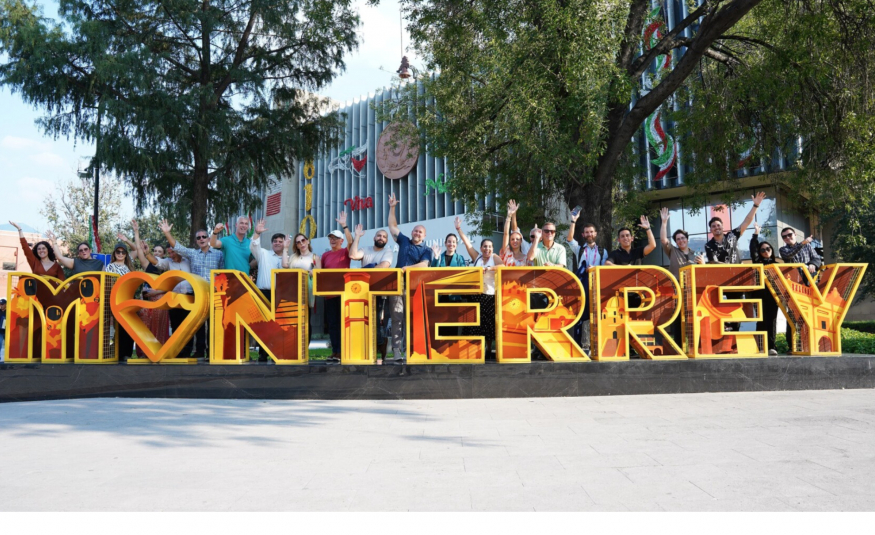UFI America Conference keynote outlines key challenges and opportunities for the industry. Glenn Hansen reports:
At the recent 2024 UFI America’s Conference in Monterrey, Fernando Fischer, president of RX USA, identified three key challenges, each of which he framed as both a hurdle and an opportunity. His insights reflect not only his extensive experience in the industry but also the evolving nature of global events and exhibitions, especially in the wake of the pandemic.
1. Proving value and return on expectation (ROE)
The first challenge Fischer highlighted was the need to demonstrate value, specifically in terms of ‘Return on Expectation’ (ROE). He noted that as costs for attendees rise significantly – by as much as 50% to 60% since 2019 due to higher prices for travel, accommodation, and food – the industry must justify this increase to participants. Companies are scrutinising their expenses more closely, with CFOs questioning the need to send large teams to events. As a result, event organisers must prove the value of attending their shows, ensuring that every attendee feels their participation is worthwhile.
Fischer underscored that this requires a shift in the way value is communicated and created. He advocates for a value-based selling approach that deepens relationships with clients by identifying and meeting their specific needs. The goal is to ensure that exhibitors and attendees perceive genuine benefits from participating in events, which requires continuous learning and reinforcement within sales teams. In his vision, this is accomplished through clear measurement tools, such as the ‘Exhibitor Dashboard’, which provides exhibitors with key performance indicators (KPIs) like lead generation and brand awareness. This transparency allows exhibitors to benchmark their performance, reinforcing the value they gained from the event.
2. The necessity for new clients
Fischer’s second challenge focused on the industry’s reliance on renewals from key customers, a strategy he believes is insufficient for long-term success. While nurturing existing clients is important, Fischer emphasised the critical need to attract new customers, particularly small and mid-sized companies, as well as international participants.
One of the industry’s key shortcomings, according to Fischer, is its treatment of new clients. Currently, new exhibitors often pay the same fees as established ones, but are relegated to less desirable spaces on the exhibition floor. This limits their visibility and opportunities for success. Fischer proposes creating a ‘self-service portal’ to empower new clients by simplifying the process of selecting services and purchasing exhibition space. This portal, augmented by artificial intelligence, would offer personalised recommendations to sales teams, helping new clients maximise their participation. By providing fair and flexible options, Fischer envisions a more inclusive and supportive environment that encourages new entrants to thrive.
3. Understanding and engaging the new generation
The third challenge Fischer identified is understanding and engaging a younger generation of attendees. He called this shift a ‘silent revolution’, noting that the average age of event participants has dropped significantly over the past three years. This generational change is causing the industry to re-evaluate its traditional approach to events, as younger audiences seek different experiences and engagement opportunities.
Fischer argued that the younger generation values freedom of choice and validation from their peers. As a result, event organisers must stop categorising attendees and instead focus on creating flexible, experience-driven events. Fischer emphasised the need for ‘micro journeys’ – customisable experiences that allow attendees to engage with events in ways that align with their specific interests. This approach acknowledges the complexity of customer journeys and breaks them down into manageable, interactive components.
One example Fischer provided was a ‘speakeasy’ programme for conference speakers, which allows participants to engage with experts in a more intimate setting, such as private lunches or guided tours. These types of experiences cater to the new generation’s desire for meaningful, personalised interactions, rather than traditional one-size-fits-all event formats.
Strategies for overcoming the challenges
To address these challenges, Fischer outlined several strategies. He emphasised the importance of getting the basics right – ensuring a strong value proposition for both exhibitors and attendees, maintaining the right exhibitor-to-attendee ratio, and meticulously planning events with a focus on attendee experience. He stressed the value of creating immersive experiences, such as product showcases, one-on-one meetings, and interactive conferences.
Surprising attendees with unexpected experiences is another tactic Fischer recommended. He shared an example of how RX USA invested in a concert for the PGA show, an event that attracted 5,000 attendees. These types of initiatives, whether grand or small, contribute to enhancing the overall event experience and leave lasting impressions on participants.
Finally, Fischer highlighted the role of peer-to-peer marketing, where attendees, speakers, and influencers share their event experiences within their networks. This organic promotion helps to create a sense of community and encourages greater engagement.
Conclusion
The event industry is poised for significant change over the next five years, driven by rising costs, evolving client expectations, and the shifting demographics of attendees. Fischer's perspective underscores the importance of innovation, adaptability, and customer-centric strategies in navigating these challenges. By focusing on proving value, attracting new clients, and engaging the new generation, the industry can not only overcome these hurdles but also seize the opportunities they present.
Glenn Hansen is CEO and founder of Reduce2, a consultancy specialising in sustainability and measurement. www.Reduce2.com





